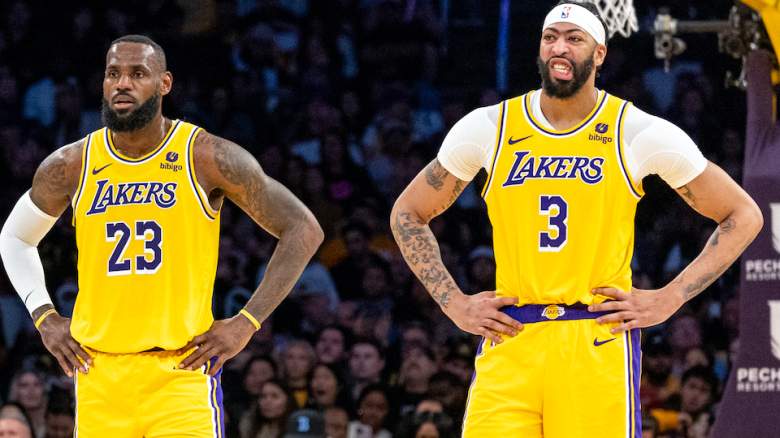The irony of an abundance of appointments of women to high levels of influence in the second Donald Trump administration is breathtaking. The 13 proposed choices include eight white women and five women of color (WOC).
Yes, female role models matter to generations of women and men. But this is not a feminist victory.
This is a new version of the U.S. female political leader—one who embodies the triumph of women's ascent to power while acquiescing to tolerance and compliance with toxic masculinity tainted with sexism, misogyny, racism, violence, and hate.
The high visibility of these appointments also appropriates a tainted retro version of female appearance—one popularized by the social media "tradwife" memes.

Yes, personal expressions in appearance are an individual's right and a foundation of feminism and individuality. But conformity in the looks of GOP picks shows up as long, curling-ironed hair, "the Mar-A-Lago face" of Botox injections and plastic surgery, and super-tight, hyper-sexualized clothing.
Hailing achievements of this Project 2025 sorority is a contradictory betrayal of the advancement women have made in the last century with the goal to support, promote, and protect all women in their progress regardless of political identity, appearance, age, or race.
Of course, women are not a monolith, and feminists are not one type of ally. But these appointments in public office are not just women exhibiting power. They are women who honor assertions, laws, and systems that cripple and erase the rights of women from home to school to workplace on health care, reproductive and LGBTQ issues of access, fairness, and safety.
Trump WOC appointees include Tulsi Gabbard, a Samoan American for director of National Intelligence; secretary of Labor candidate Latina Lori Chavez-DeRemer; Harmeet K. Dhillon for the Department of Justice civil rights division, an Indian American; and first-generation Iraqi American Alina Habba as White House counselor. Habba represented Trump in the E. Jean Carroll sexual assault case he lost. For U.S. surgeon general it is Dr. Janette Nesheiwat, a Jordanian American.
Karoline Leavitt will be White House press secretary and Susie Wiles will be White House chief of staff, the first woman in U.S. history to do so. Pam Bondi is attorney general candidate, and Elise Stefanik will be United Nations ambassador.
For secretary of Homeland Security, Kristi Noem is a controversial pick and Brooke Rollins, former founder, CEO, and president of the America First Policy Institute, will be secretary of Agriculture.
Kelly Loeffler is set to head the Small Business Administration. As the former co-owner of the WNBA's Atlanta Dream, Loeffler sold the franchise reportedly after her criticism of Black Lives Matter.
Linda McMahon, will lead the U.S. Department of Education, that Trump vows to eliminate. Co-founder of World Wrestling Entertainment, she is named in a lawsuit now on pause in Maryland alleging she had knowledge of child abuse at WWE from the 1970s to early 1990s.
The Institute for Women's Policy Research asserted that the economic fallout for women of the new administration will be "detrimental" to women and society creating "hardship" for many.
Historically, women attaining high-profile leadership is positive, and Trump's list has only slightly fewer appointments than women under President Joe Biden.
Fourteen women, including 10 WOC, held the vice presidential post, cabinet positions, and the office of White House press secretary, by a French American Black woman, Karine Jean-Pierre. Kamala Harris is the country's first Black and South Asian female vice president; Deb Haaland, a Native American woman as secretary of the Interior; Julie Su, acting secretary of Labor and an Asian American; and Adrianne Todman, a Black woman, is deputy secretary performing the delegable duties of the secretary.
Katherine Tai, United States Trade representative, is Asian American; Linda Thomas-Greenfield, U.S. ambassador to the United Nations is Black; Isabel Guzman, a Latina, is administrator of the Small Business Administration. Shalanda Young, a Black woman, is director of the Office of Management and Budget; and Dr. Arati Prabhaka, director of the Office of Science and Technology Policy, is South Asian.
White women leaders serving the Biden administration are Dr. Janet Yellen, secretary of the Treasury; Gina Raimondo, secretary of Commerce; Jennifer Granholm, secretary of Energy; and Avril Haines, director of National Intelligence.
Why obsess with these numbers? It is critical to keep track of the progress—or lack of progress—toward gender and racial equity in leadership.
The slow road to parity is not new. A recent Human Resource Quarterly Report, showed "30 distinct identity factors" as the basis for discrimination including race, age, gender, appearance, and accents.
The most recent Women in the Workplace 2024: The 10th-anniversary report by McKinsey and Company found only 22 percent of the CEOs in the U.S. are white women, with 14 percent men of color, and 7 percent WOC. The rest are white men.
Surely it is admirable that women are filling high profile roles in U.S. government in the upcoming administration. But for now, hold the applause.
Michele Weldon is an award-winning journalist, author, senior leader with The OpEd Project, and emerita faculty at Northwestern University whose latest book is The Time We Have: Essays on Pandemic Living.
The views expressed in this article are the writer's own.




















 English (US) ·
English (US) ·